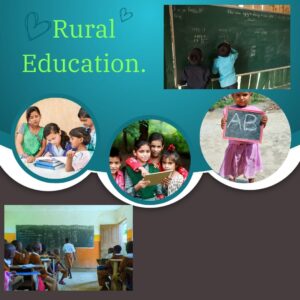
Rural education often stands at the crossroads of neglect and necessity. While urban centers boast of advanced educational infrastructure and resources, rural areas frequently face challenges in providing quality education to their inhabitants. However, the significance of rural education cannot be overstated. It not only serves as a cornerstone for individual empowerment but also contributes to the socio-economic development of entire communities. In this article, we delve into the critical importance of rural education and explore avenues for enhancing its reach and quality.
The Challenges of Rural Education:
Rural education encounters a myriad of challenges that hinder its effectiveness. Limited access to educational facilities, including schools and libraries, is a primary concern. Remote geographical locations often exacerbate this issue, leading to longer commute times and fewer educational opportunities for students. Additionally, inadequate funding and resources plague many rural schools, resulting in outdated materials, understaffing, and subpar infrastructure.
Furthermore, the scarcity of qualified teachers poses a significant hurdle. Rural areas struggle to attract and retain skilled educators due to lower salaries, limited professional development opportunities, and isolation from urban amenities. This dearth of qualified teachers directly impacts the quality of instruction, hindering students’ academic progress and future prospects.
Socio-economic factors also play a crucial role in shaping rural education outcomes. Poverty rates tend to be higher in rural communities, leading to greater disparities in access to educational resources and extracurricular activities. Moreover, cultural norms and traditions may influence educational attitudes and expectations, affecting student engagement and performance.
The Importance of Rural Education:
Despite these challenges, rural education remains a vital catalyst for individual and community development. It serves as a gateway to knowledge, empowering individuals to pursue their aspirations and contribute meaningfully to society. Quality education equips students with essential skills, including literacy, numeracy, critical thinking, and problem-solving, which are indispensable for navigating today’s increasingly complex world.
Moreover, rural education fosters social cohesion and cultural preservation within communities. Schools often serve as focal points for community gatherings and events, facilitating intergenerational exchange and promoting a sense of belonging among residents. By celebrating local heritage and traditions, rural schools help preserve cultural identity and strengthen community ties.
Furthermore, investing in rural education is key to addressing regional disparities and promoting inclusive growth. By equipping rural students with the knowledge and skills needed to succeed, educational initiatives can help break the cycle of poverty and stimulate economic development in rural areas. Educated individuals are more likely to secure gainful employment, contribute to local industries, and drive innovation within their communities.
Strategies for Enhancing Rural Education:
To realize the full potential of rural education, concerted efforts are needed to address existing challenges and promote equitable opportunities.
Some strategies include:
Increasing Access: Investing in infrastructure and transportation to ensure that all rural communities have access to quality educational facilities. This may involve building new schools, improving existing infrastructure, and implementing innovative solutions such as mobile classrooms or distance learning programs.
Recruiting and Retaining Teachers: Offering competitive salaries, professional development opportunities, and support networks to attract and retain qualified educators in rural areas. Providing incentives such as student loan forgiveness programs or housing assistance can help alleviate the financial burden and encourage teachers to commit to rural schools long-term.
Leveraging Technology: Harnessing digital tools and online resources to supplement traditional classroom instruction and broaden learning opportunities for rural students. This includes providing access to computers, internet connectivity, and educational software, as well as offering virtual courses and remote tutoring services.
Community Engagement: Fostering partnerships between schools, families, businesses, and community organizations to create a supportive ecosystem for rural education. Engaging parents and community members in school activities, volunteer initiatives, and decision-making processes can enhance student learning outcomes and strengthen community resilience.
Tailoring Curriculum: Designing curriculum and instructional approaches that reflect the unique needs, interests, and cultural backgrounds of rural students. Incorporating hands-on learning experiences, outdoor education, and place-based instruction can enhance relevance and engagement while promoting local pride and stewardship.
By investing in quality education for rural communities, we not only empower individuals to realize their full potential but also foster inclusive growth and sustainable development across regions. Through collaborative efforts and innovative solutions, we can bridge the gap in educational opportunities and build a brighter future for all.
